- Elements of Well-Being5570 Sterrett Place Suite 308
Columbia, MD. 21044 - 207 Ridgely Ave.
Annapolis, MD. 21401443-996-2069 -
Latest Articles:
- • The Best Ways to Protect Your Skin from the Sun This Summer •
- • Savoring Summer with Recipes Using the Best Summer Ingredients •
- • Top 5 Best Staycation Ideas for Summer •
Health WellNews
Tips to Manage Fall Allergy Season
After such a scorching summer in much of the country, Fall is a welcome season bringing cooler temperatures, comforting food, and a gentle lead into winter. However, for many people, Fall also brings with it some severe allergies.
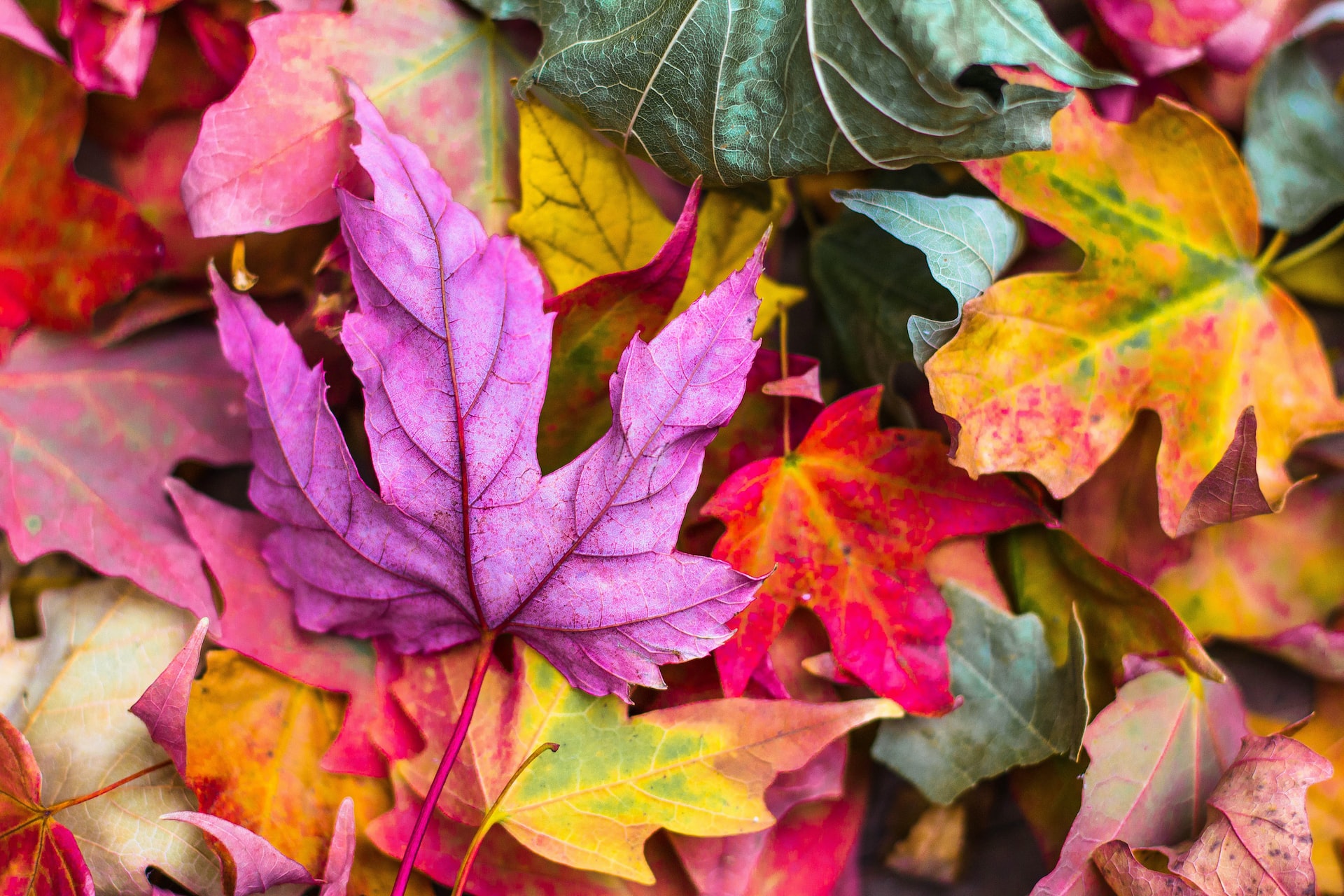
While most people may associate severe allergies with the Spring and Summer months when everything is in bloom, there are those who only suffer during the autumn. The main cause of Fall hay fever is typically weed pollen but, depending on where you are located, common fall allergens can include ragweed, sagebrush, burning bush, tumbleweed, and Russian thistle just to name a few.
If you suffer from these types of allergies, you are more than likely aware of days when pollen counts are especially high (windy and warm days). Rainy days are a welcome relief until the grasses dry and pollen counts soar once again.
A common Fall occurrence in many parts of the country is burning leaves after they fall from the trees. This is when mold can become a problem for those suffering from Fall allergies. When those piles of damp leaves are left alone to rot, mold can form and cause allergy sufferers all kinds of issues.
In some areas of the country, ragweed can cause problems from late August to mid-November. Ragweed thrives on warm days and cool nights and is found in every part of the country. As with most grasses, pollen counts are highest early in the morning.
Now that you know some of the more common Fall allergies, what can you do to make this season as painless as possible? It’s not realistic to lock yourself inside with nose spray and tissues but you can be strategic in your plan of attack to deal with the dreaded Fall allergy season. Here are a few tips to ease the burden:
- Make sure you are aware of pollen counts so you can limit your time outside during peak hours if possible.
- Use a HEPA filter and humidifier to keep airborne pollen levels manageable.
- Keep doors and windows closed, especially on days when pollen counts are high.
- Vacuum and dust regularly.
- Change clothes and take a shower after outdoor activities.
In addition to over-the-counter nasal sprays and antihistamines, check with your health care provider to discuss treatment options including acupuncture (which has a history of effectively treating allergies) and herbal remedies, as these are more natural options to dealing with Fall allergies.
Fall’s Best Comfort Food
One of the best things about the approach of Fall is the cooler temperatures that bring family recipes filled with warm comfort food. It’s no wonder Fall is often described as soup season. Hearty and warm soups filled with fall produce and rich broth bring warmth and comfort to family tables no matter where you live.
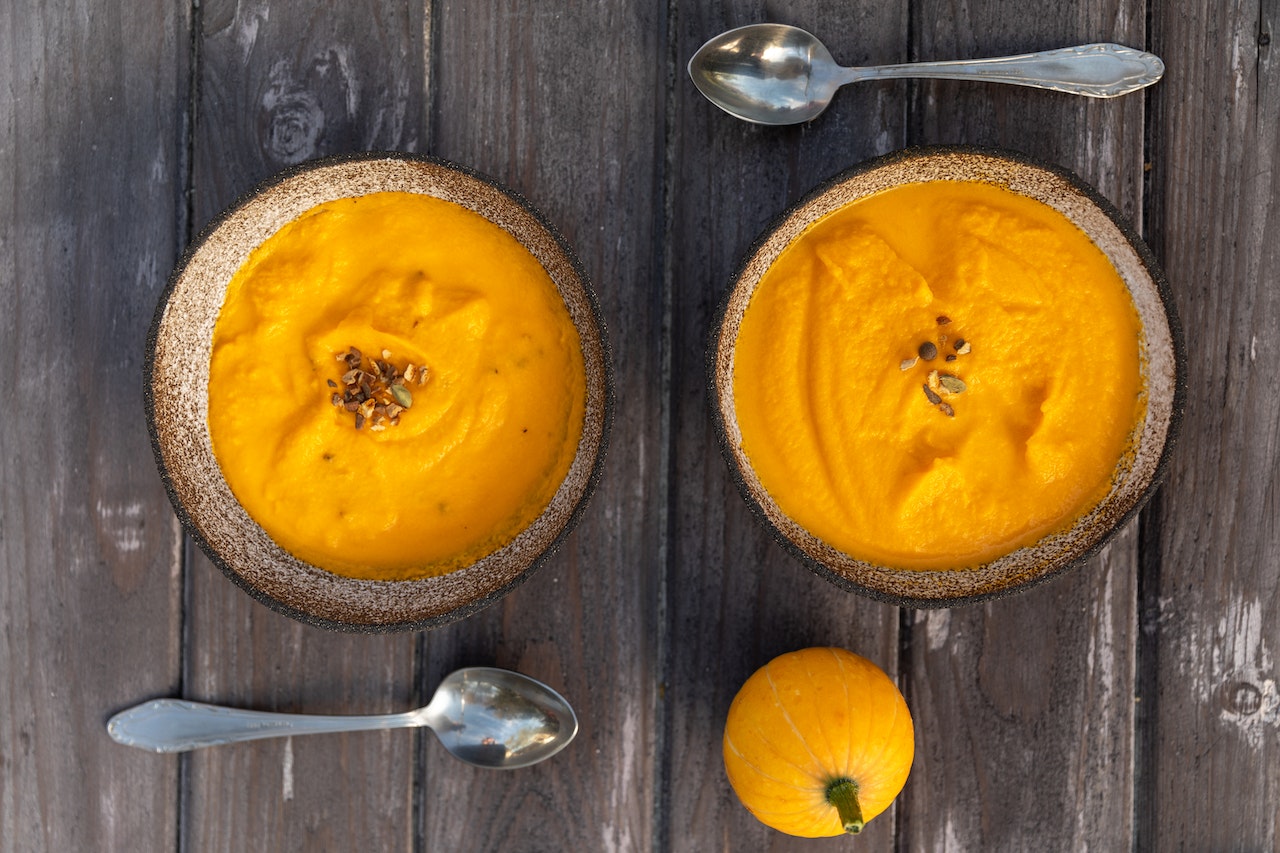
One of the most recognizable Fall vegetables must be pumpkin. But pumpkins aren’t just cute Halloween decorations. A quick search of the Internet will deliver dozens of pumpkin soup recipes right to your inbox. Here’s a favorite you may not have tried before: Pumpkin Soup with Coconut Milk. You can vary this soup recipe by choosing butternut squash as well and the addition of the coconut milk instead of heavy cream won’t be noticeable to most. Finishing it off with a healthy spoonful of plain Greek yogurt, chopped parsley and a drizzle of high-quality olive oil will have you going back for seconds and thirds! Making a double batch also leaves you extra to freeze and warm up later when time is short.
The prep time for this soup is approximately 30 minutes and the cook time is one hour and 35 minutes. This recipe will serve 8. And the roasting of the vegetables gives this soup a rich flavor you won’t forget.
Ingredient List:
- 1 large sweet potato
- 1 small pumpkin or butternut squash, peeled and cut into 1-inch cubes (shortcut: you can buy already cubed butternut squash in the freezer section of most grocery stores but fresh is best!)
- 3 large carrots, peeled and cut in half
- 2 large red onions, halved
- ¼ cup high-quality extra virgin olive oil
- 1 teaspoon of flakey sea salt
- ½ teaspoon ground allspice
- 1 pinch of white pepper
- 1 teaspoon ground nutmeg
- 1 teaspoon ground cumin
- 1 teaspoon ground coriander
- 1 teaspoon ground ginger
- 1 pinch ground black pepper
- 4 cups checking stock
- 2 (13.5 ounce) cans coconut milk
Directions:
- Preheat the oven to 350 degrees. Wrap sweet potato in foil and bake until soft, about 45 minutes
- While the sweet potato is roasting, place pumpkin, carrots and onions on a baking sheet. Brush with olive oil, sprinkle with salt, allspice and white pepper. Bake for 30-40 minutes until soft.
- Peel sweet potato and squash when cool enough to handle. Transfer to a large saucepan and add carrots, onions, nutmeg, cumin, coriander, ginger, salt and pepper. Stir in chicken stock and coconut milk. Bring to a boil; reduce heat and summer 20 minutes.
- Puree soup using an immersion blender or regular blender until smooth.
Serve warm with crusty bread and enjoy the tastes of Fall!
3 Tips to Keep Mentally Healthy in Fall
While many people embrace the approach of Fall, with its vibrant colors, cooler temperatures, and shorter days, others notice a dangerous shift in their mental health. For some, the decrease in temperature means more time indoors and that can have a negative impact on our physical and mental health. Here are three tips to maintain your mental health during the Fall.
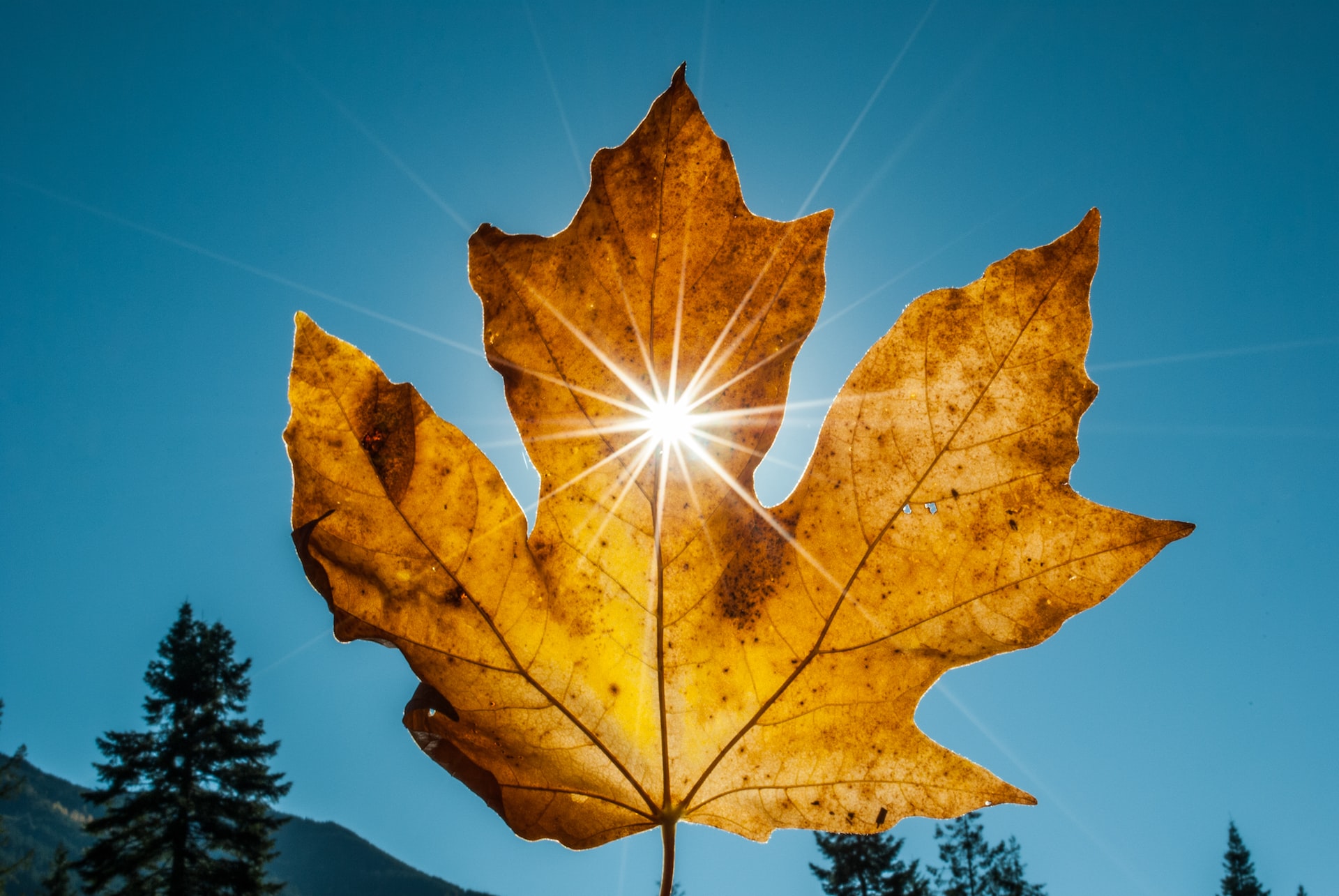
Keep Your Vitamin D Levels in Check
It’s easy to get lots of Vitamin D during the warm summer months, but with shorter days comes fewer hours of sunshine which can translate to less time spent outside. This can make it increasingly difficult to get the Vitamin D you need.
Low levels of Vitamin D can cause a host of health issues so keeping your levels in check is important during the colder and sometimes darker fall and winter months. While you can increase your intake through diet changes, a Vitamin D supplement might be the most effective way to maintain your intake. The daily Vitamin D recommendation is 400-800 IU but some people need between 1000-4000 IU per day to keep levels in the right range. Make sure you talk to your health professional to see what is right for you.
The Importance of Sleep
The cooler temperatures of Fall can often bring the urge to hibernate or spend a little more time under those cozy blankets. But keep in mind that this could be disrupting your sleep patterns which can also bring about a host of health issues. The fewer hours of sunlight can also give the urge to stay in bed longer. Sleep experts recommend keeping the same bedtime and waking time throughout the week. Don’t let yourself sleep the weekends away! Use the cooler temperatures to your advantage as the body sleeps best in a cool environment.
Stay Hydrated
Believe it or not, we’re more likely to be dehydrated in the winter months. It makes sense if you think about it. It’s not as warm out so we’re less thirsty. Dry skin and a lack of energy might just be the keys to recognizing you’re dehydrated.
There are lots of ways to track your hydration including apps and fancy water bottles. You can also maintain your hydration through drinking herbal tea for a warm beverage during those cooler mornings and evenings. And you can incorporate foods with high moisture contents including apples, pears, celery, lettuces, cucumbers, butternut squash, and pomegranate among other options.
As you embrace sweater weather, embrace your mental health and make sure you are getting enough sleep, staying hydrated and keeping up with your Vitamin D. This can make all the difference in whether or not you enjoy a healthy Fall.
Cultivating Defensive Qi to Fight Summer Allergies
As the rebirth of Spring gives way to the long, hot days of summer, seasonal allergies may not go away with the change of season but might just shift to a new or more intense set of symptoms. These warmer temperatures can lead to even more pollen production which can lead to even harsher symptoms that Spring produced.
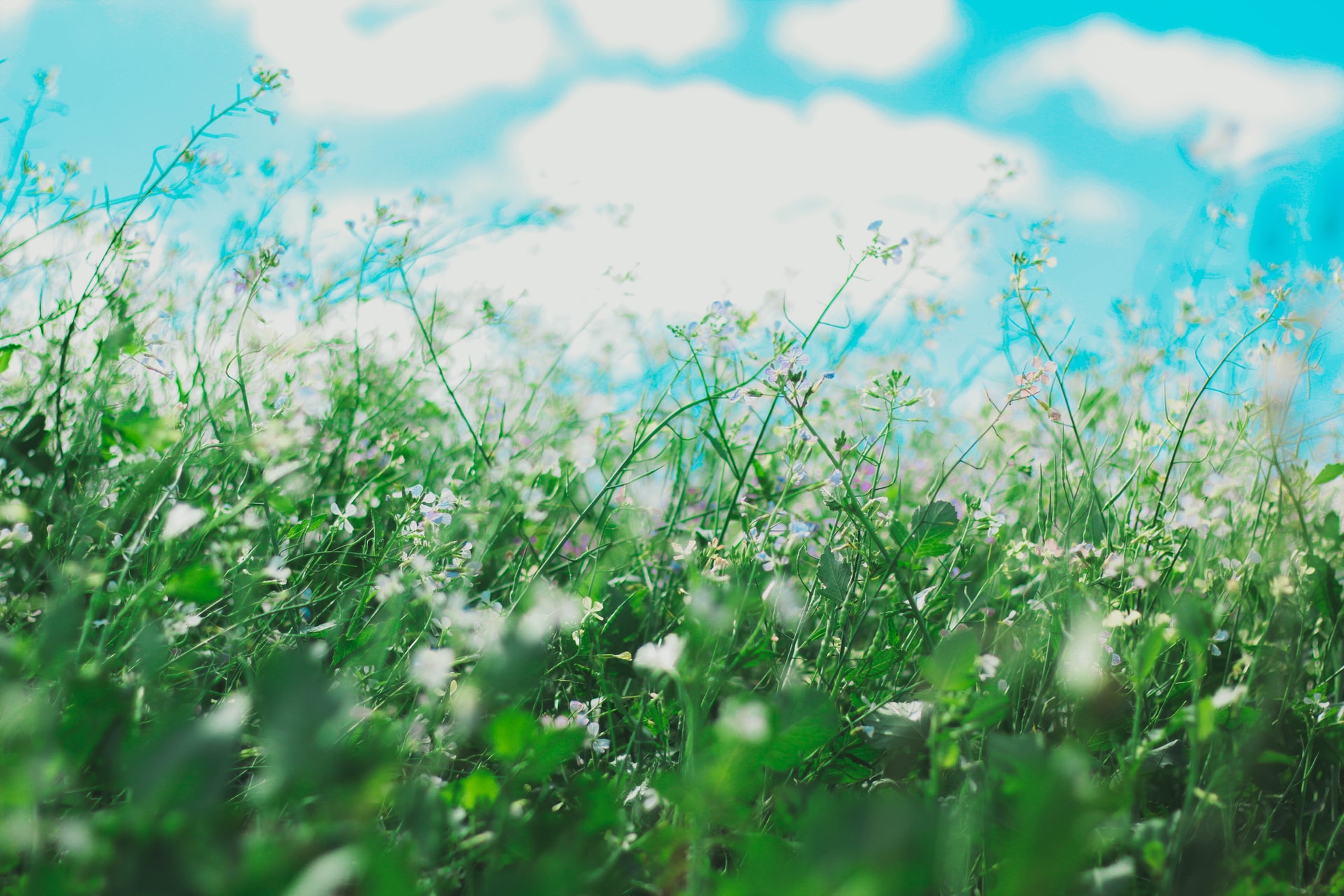
While Spring allergy season brings the pollen from the trees and flowers, summer is the time for grasses and weeds to release their pollen which then triggers a whole new round of sneezing, watery and red eyes. While pollen is still the main culprit, weeds like ragweed (the most common allergy because it can travel for hundreds of miles in the wind), sagebrush, tumbleweed, and pigweed to name a few will bring their own set of irritants. And grasses like Bermuda, blue grasses, sweet vernal and red top will also cause havoc for the sinuses. And don’t forget the increase in pet hair as pets shed to keep cool in the warm summer months.
And adding another layer of irritation is the insect bites that come from some of summer’s new residents like bees, wasps, yellow jackets, and fire ants. Dust mites also peak during summer and thrive in warm, humid temperatures.
Instead of just treating the symptoms of seasonal allergies, acupuncture goes to the root problem by rebalancing the body’s energy systems, enhancing the immune system, and helping the body to heal naturally. Your acupuncturist will go through a complete health history to help you determine the cause of the allergies and target meridians on the body including the lungs, stomach, spleen, and colon to circulate qi (a type of energy connected to immunity) and provide a defense against seasonal allergies. Stimulating certain acupuncture points on the body will lead to a restoration of balance and relief from the sometimes debilitating symptoms of seasonal allergies.
For a one-two punch in fighting your summer allergy symptoms, take the following precautions as you begin your acupuncture treatments:
- Limit your time outdoors when pollen counts, and smog levels are too high.
- Use an air purifier to keep pollutants at bay.
- Make sure you regularly clean air filters, vents, and anywhere pollen can collect.
- Wash your bedding and rugs in hot water so dust mites don’t have a chance to attack.
- Dust and vacuum often and use a vacuum with a HEPA filter.
- Wear a mask when cleaning and working in your yard.
Your acupuncturist may also develop an herbal formula to help you deal with your allergy symptoms. Herbs are a great addition to your treatments so talk to your acupuncturist about all your options. Don’t spend another groggy day suffering from your symptoms and the effects of the over-the-counter medications. Let your acupuncturist help you develop a safe and effective treatment protocol, so summer allergies don’t leave you hiding inside during these warm months.
3 Tips for Healthy Summer Fun
Summer is here and it’s time to get out and enjoy the warm weather. But it’s also important to stay safe and healthy so here are three tips to help you stay healthy while enjoying these longer days.

The first tip is to get up and move! Now that it stays lighter into the evening hours, make sure you can get outside and move. This is especially important if you have a job where you sit most of the day. The Centers for Disease Control and Prevention recommends at least 150 minutes of aerobic physical activity every week. This increase in action has immediate benefits like better sleep and reduced stress and anxiety.
The second tip is to protect your skin by using proper sunscreen and taking care of your skin throughout the summer months. The most natural way to protect your skin is to cover up when out in the sun. This includes long sleeve sun guards, hats, sunglasses, and bathing suit coverups. Using an SPF sunscreen is also important, as is building up your exposure slowly, especially if you live most of the year in a cold climate.
The third tip is to add more delicious summer fruits and veggies to your diet. You may have heard of “eating the rainbow,” which means eating foods that are each color of the rainbow regularly. Another suggestion is to make half of your plate veggies. This is easier to do in the summer when there are so many delicious fruits and vegetables that are in season and easily available.
And a bonus tip is to make sure you stay hydrated! If you are going to be spending the day out and about in the heat (especially if you are exercising or otherwise exerting yourself) you should boost your water intake. It’s recommended to add 12 ounces of water for every 30 minutes you spend in the heat sweating.
Use these tips to make the most of this time of year where the days are longer and warmer than usual, and you can get out and enjoy the fresh air and sunshine. Your body will appreciate the Vitamin D, exercise, and heathy eating!
A Taste of Summer
Summer brings with it a variety of vegetables and fruits that aren’t available during the rest of the year. Two of the most abundant ingredients are tomatoes and zucchini. Here’s a great recipe that combines both for a dish you can make at home or share at a summer BBQ. This zucchini and tomato bake only takes minutes to prep and can help you use those vegetables before they spoil.
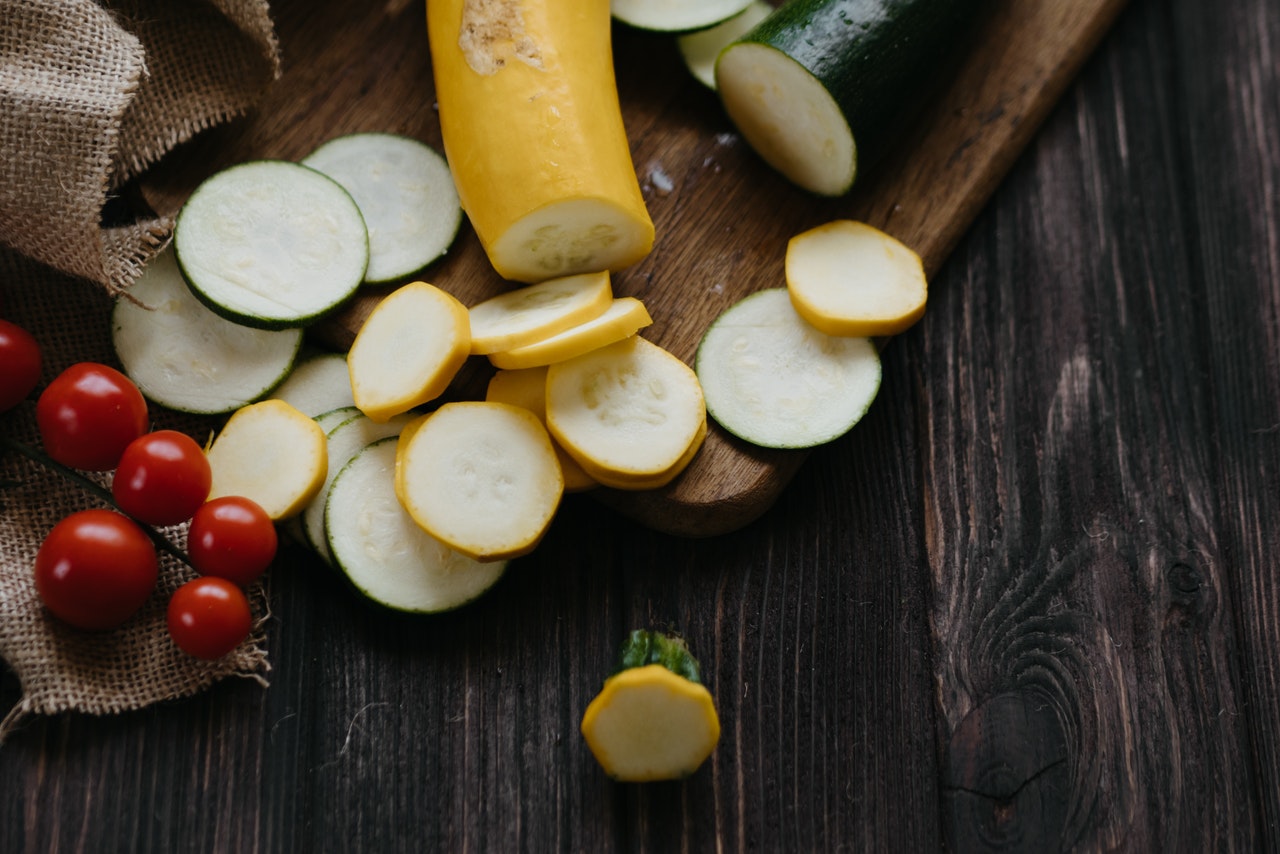
The ingredient list is simple:
- 3 medium zucchinis, chopped
- 1 pint of cherry tomatoes, halved) If you want to really be fancy, use the multi-colored tomatoes
- 2 cloves of minced garlic
- Extra-virgin olive oil for a final drizzle
- Kosher salt and freshly ground black pepper
- 1/3 cup of freshly grated parmesan cheese
- 2 tablespoons of basil, torn for garnish
And putting this dish together is quick and simple. Preheat your oven to 350 degrees. In a large bowl, combine the chopped zucchini, halved tomatoes, garlic, olive oil drizzle, salt and pepper to taste and mix everything until it is well combined. Pour vegetables in a small baking dish and sprinkle with parmesan. Bake 35 minutes until golden brown and delicious! Add the basil garnish and serve.
Don’t let summer pass without making this dish that combines two of summer’s greatest culinary gifts.
Spring Cleaning the Mind: Meditation in this New Season
Many people have issues “turning off their brain” to go to sleep or even just to relax. And for others this inability to “quiet the mind” can bring its own set of stress and anxiety. It might seem like an impossible task for some, but the steps to begin a regular meditation habit are simple and easy to attain.
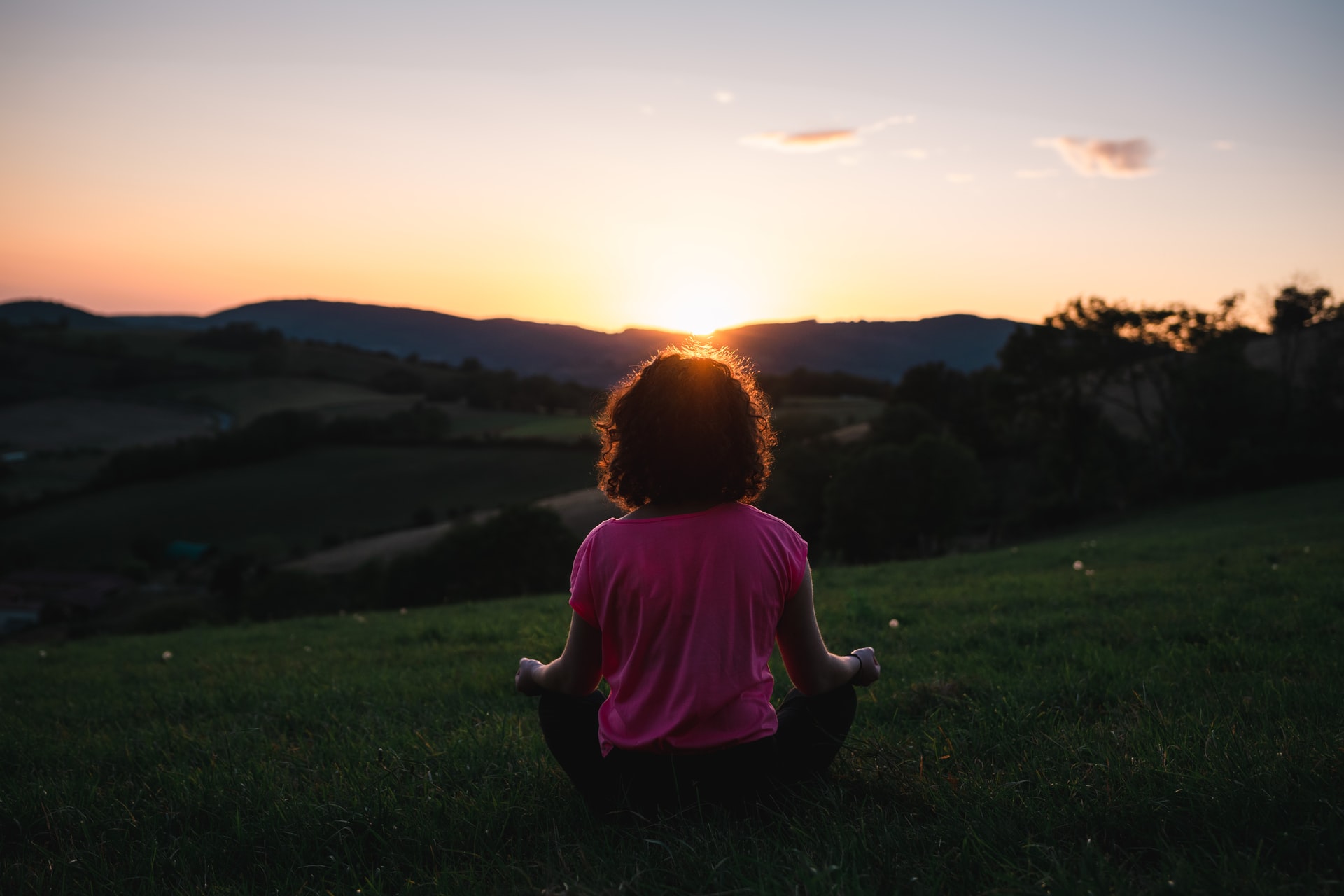
Even mainstream medical practitioners recognize the positive impact of meditation, a type of mind-body medicine that has been practiced for thousands of years. It doesn’t have to be complicated to get started. It’s as simple as finding a quiet room, a comfortable position, focused attention, and an open attitude. And one of the best tips might not be something you have even considered before: don’t try so hard.
There are many helpful apps, programs, and websites that can help you begin but the main thing you want to do is don’t set your expectations super high as you begin. Set a goal and go with it. For example, better sleep, reduced anxiety, or stress relief. And don’t be afraid to try different methods of meditation until you find one you are comfortable with.
After setting your goal or intention as it is sometimes called, create a space that is comfortable and free of distractions and noise. Some people like to keep things minimalist while others like to add things that make them comfortable or bring joy (like candles, plants essential oils, or special lighting). If you are using a guided meditation app or program, you might consider using earbuds to cut out the distractions and noise.
Now that you have set a goal and created a space, the next tip is to make your meditation a daily routine. Just like finding daily time to exercise, setting a time to meditate helps ensure you will make it a habit. For some, this might mean meditating first thing in the morning before the day begins. For others, meditating nightly before bed helps quiet the mind for better sleep.
No matter what meditation method you choose, just beginning the journey is a step in the right direction. Meditation can help both your mental and physical health so developing a consistent practice is the key to success. Just get started and be open to where the path takes you!
Enjoying a Taste of Spring
After the soups and comfort foods of fall and winter, it’s time to enjoy the harvest of Spring vegetables. Nothing heralds the arrival of Spring and warmer temperatures like a nice Spring Harvest Salad. Depending on where you live, these vegetables may vary a bit in their arrival time but adjust the ingredients and ratios to your preferences.
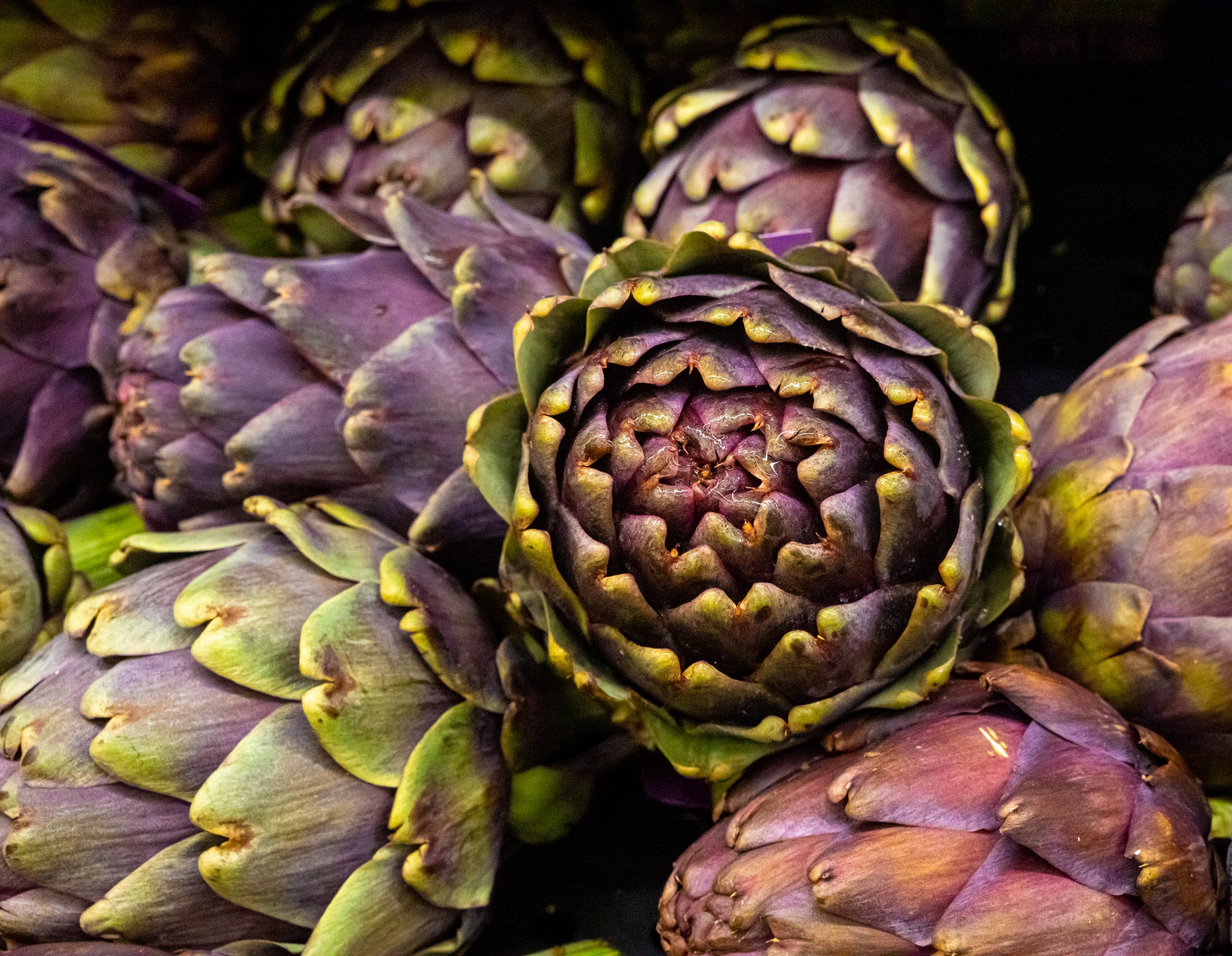
Spring leaf lettuce (and some other varieties depending on where you live) can be plentiful this time of year so enjoy this early harvest of greens and mix and match to your taste buds. Spinach is also a great addition to any salad and packs a great nutritional punch. Spring onions are also plentiful this time of year as they are one of the first vegetables ready to harvest in early Spring.
This salad begins with spring leaf lettuce, spinach, and if you like that peppery bite, a bit of arugula. Artichokes are also in season in the spring so adding those delicious hearts is a great option. Throw in some sliced strawberries and some of those spring onions and you have the base to a beautiful salad!
Dressings can vary by preference as some want to keep the flavors as the star but here is a simple dressing for this amazing salad.
- 4 teaspoons of lemon juice
- 2 ½ teaspoons of olive oil
- 1 tablespoon of balsamic vinegar
- 1 ½ teaspoons of Dijon mustard
- Pinch of salt and pepper
Adding a bit of feta cheese and some sliced toasted almonds takes this salad over the top. Bon Appetite!
Clearing the Wind: Dealing with the Seasonal Allergies of Spring
Spring is a beautiful rebirth after a sometimes long, cold, and harsh winter. However, if you suffer from seasonal allergies, you know that this rebirth of Spring brings with it a release of pollen that can trigger hay fever. As plants, trees, grasses, and weeds begin to release their pollen, millions of people begin to sneeze and sniffle.
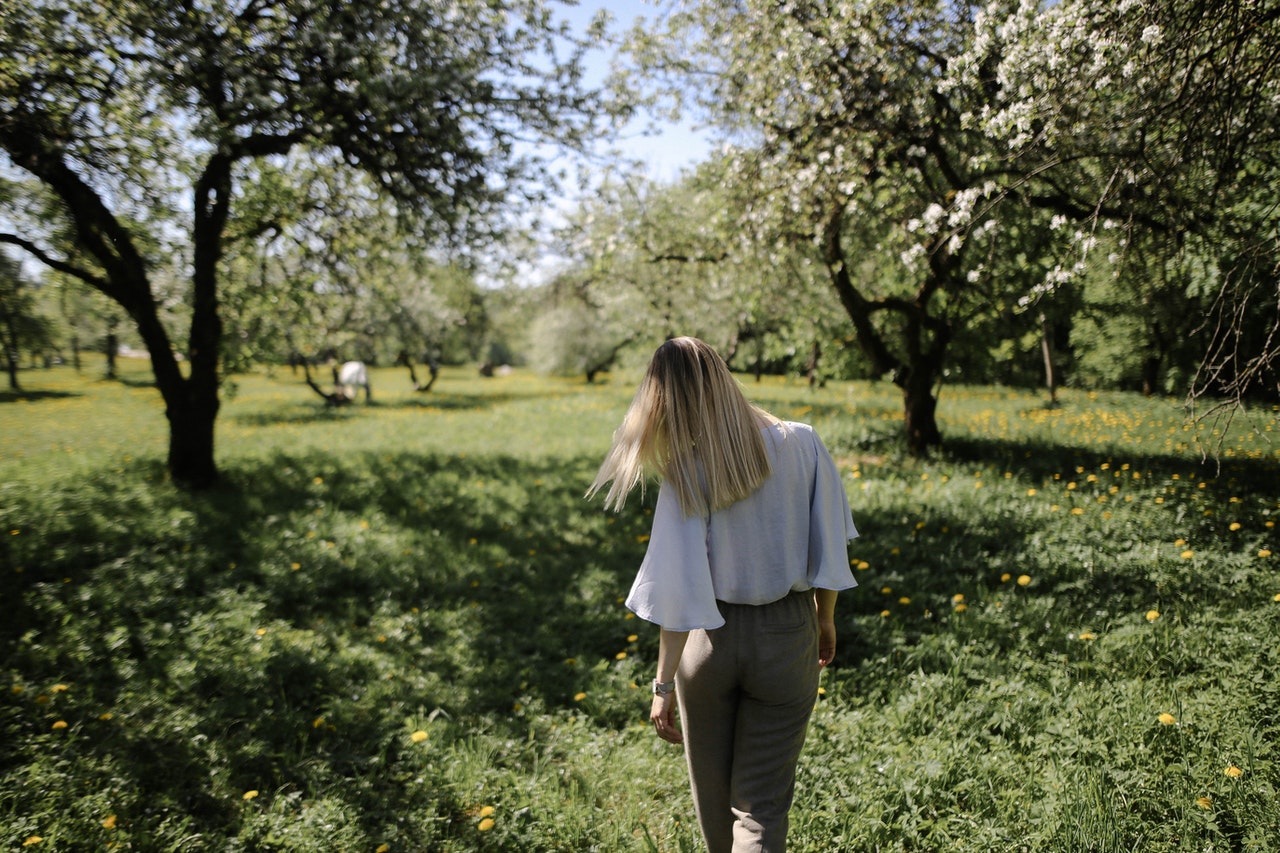
Symptoms include a stuffy nose, itchy eyes, nose, and throat, coughing, and nasal congestion. What happens is the body detects the pollen in the system and thinks it needs to attack this foreign substance. Histamines get released into the body and the war of seasonal allergies begins.
Over-counter-medications are often the first line of defense but can bring additional side effects and they treat the symptom but not the root cause. Clinical research demonstrates the effectiveness of acupuncture in treating seasonal allergies. Specific treatment points differ according to a person’s symptoms but common points that might be addressed include L120, ST2, and ST36 to deal with Qi deficiencies to get to the root of the problem. If you are sensitive to prescription medications, acupuncture is a great drug-free option to help relieve the symptoms of seasonal Spring allergies.
In addition to acupuncture treatments, there are other steps you can take to minimize your symptoms.
- Do a spring cleaning and clean out particularly dusty or moldy areas of your home like air vents, basements, and attics.
- Stick to indoor activities to minimize pollen exposure
- Keep doors and windows closed.
- Take a shower to rinse off pollen after outdoor activities.
The root cause of allergies is different for everyone. Another popular and helpful option to explore with an acupuncturist or Traditional Chinese Medicine practitioner is adding herbal formulas to your treatment plan as this can greatly increase the efficacy of the treatments. Adding herbal formulas along with the traditional needle treatment can be an effective one-two punch for treating seasonal Spring allergies.
Change your diet, change your blood
What is diabetes? Type 2 diabetes is an epidemic in the west and is usually caused by the production of too much insulin. Why is there too much insulin? Simply put, the insulin is there to combat the amount of glucose in the blood. And carbohydrate foods are quickly turned into glucose in the bloodstream. A diabetic’s blood is tested over a period of 90 days. A popular treatment protocol is using medication with more insulin to bring blood glucose down, but dramatically reducing the amount of carbohydrates consumed actually treats it from a ‘Ben’ level.
In Chinese Medicine we talk about the ‘Ben’ and ‘Biao’. The Ben is the root of the issue and the Biao is the manifestation. In this case the Ben would be the amount of carbohydrate consumed and the Biao would be the body over producing insulin to combat it. When looked at in this way it becomes obvious that to medicate with more insulin may not only be unnecessary, but it could potentially do more harm by perpetuating the long-term progression of the disease, which can lead to more dire symptoms.
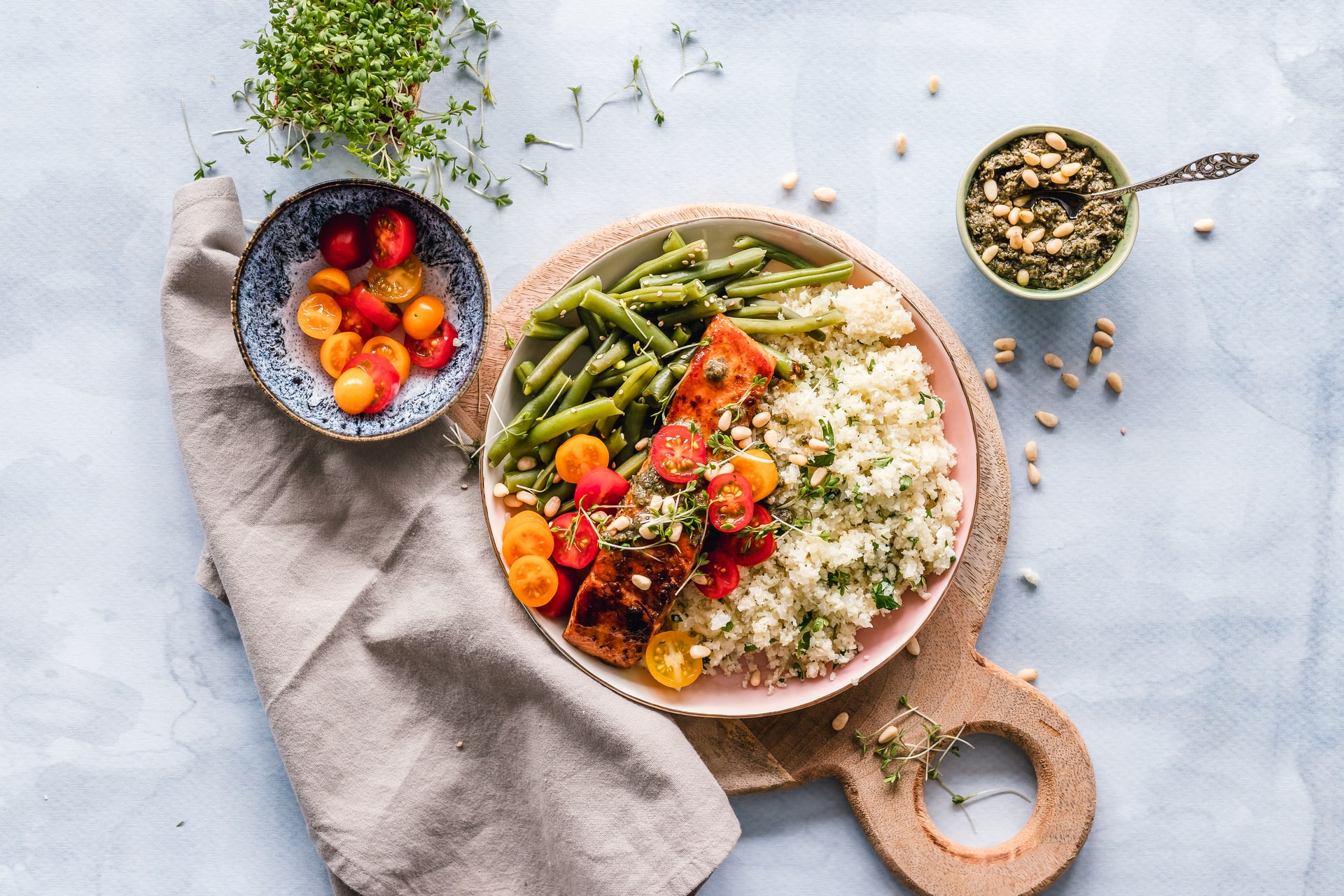
Acupuncture treatment can help us to treat the ‘Ben’ by strengthening the organs of the Stomach and Spleen. In Chinese medicine, the function of the Spleen also includes the Pancreas and is often called the Spleen/Pancreas Official. The pancreas is the organ which western medicine understands to produce insulin, which regulates blood sugar levels. When the Spleen meridian organ system is out of balance, it tends towards deficiency and weakness. When the Spleen is no longer functioning properly, we tend to crave sugary foods. The more sugar we eat, the more we can weaken the function of the Spleen, and then the more we crave.
According to Chinese medical thought, almost all addictions stem from some sort of meridian and organ imbalance. The cure for addiction is to strengthen the Qi of the affected organ, the most effective way to do that is through acupuncture treatment which works on the Qi level.
Traditional Chinese Medicine diagnoses for the disease is very different, it looks at differentiations of patterns – meaning different patients present with different patterns of diagnosis according to their varying constitutional types and lifestyle factors. Chinese medicine says that Yin is always deficient, whether that is Lung Yin in the case of diagnosis with excessive thirst. Stomach Yin in the case of diagnosis with excessive hunger, or Kidney Yin in the case of diagnosis with excessive urination. Ways Chinese medicine treatment can bring the Yin back into balance is acupuncture, herbs and rest. In a nutshell, Yin is stillness, rest, sleep. Yang is our active mode. The reason many westerners are imbalanced in their internal Yin is they do not rest enough. This is something simple we can all do more of for greater health.
So in summary the best ways to treat and even reverse your type 2 diabetes diagnosis are diet – reducing sugar and carbohydrate intake to a minimum. And seek out alternatives that can help – acupuncture can help to strengthen organs of digestion helping to reduce sugar cravings. The integration of acupuncture with herbs, can quickly rebalance the internal Yin and Yang of affected organs. More rest – be more Yin!
Foods to address diabetes (Type 2)
- Beans/legumes
- Dairy products
- Dietary fiber
- Dried fruits
- Fish
- Fruits
- Nuts
- Plant protein (decreases the risk of type 2 diabetes in females)
- Polyunsaturated fats
- Seafood omega-3s
- Seeds
- Vegetables
- Whole grains
- Yogurt
Foods to avoid to reduce the risk of diabetes
- High glycemic index and high glycemic load foods
- Nonnutritive sweeteners
- Processed meats
- Red meat and processed meat
- Sugar-sweetened beverages
- Total protein and animal protein
- Trans-fats
- Unprocessed red meats
- Yogurt

